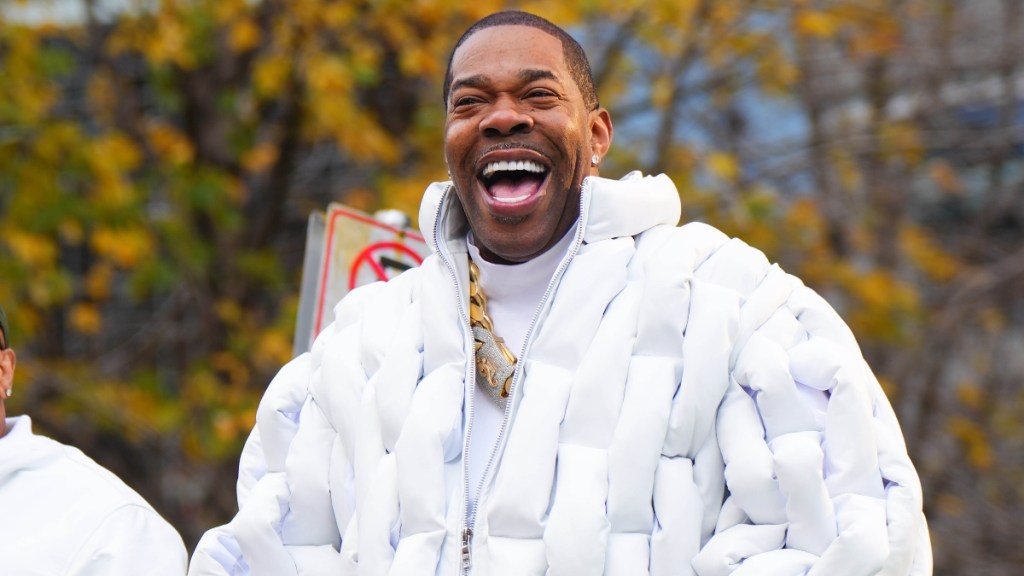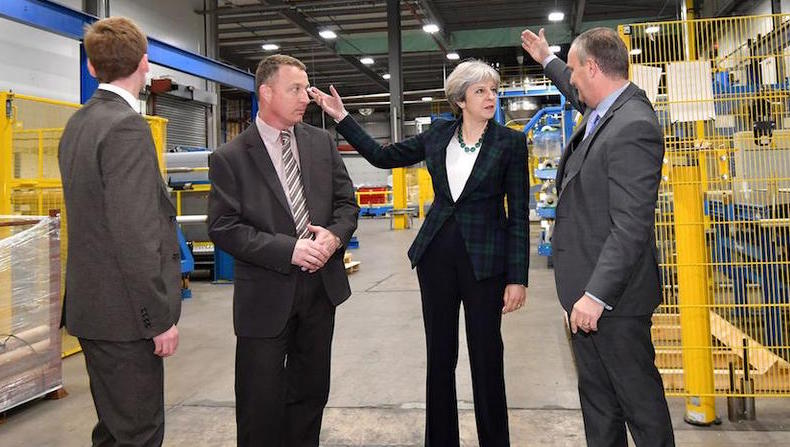Who was involved? Our Prime Minister and a local BBC journalist.
Where did it happen? A roofing factory in North East Derbyshire, a Labour-held constituency that the Tories are after.
What happened? A reporter asked Theresa May if she knows what a “mugwump” is, in a call back to Boris Johnson calling Jeremy Corbyn one. Her response? “What I recognise is that what we need in this country is strong and stable leadership.”
Theresa May tried three times to become an MP in the 1990s. In the first two campaigns, which she lost, she strangely avoided taking part in public hustings with her Labour opponent, opting instead to go door-to-door canvassing. In other words, she has always been bad at those difficult political arts of improvising and riffing – AKA talking to people.
Videos by VICE
This has become painfully clear one week into the election. While her opponents have been reading books to primary school children or walking through crowded city centres with a semblance of normality, the Prime Minister’s schedule seems to involve being helicoptered into key constituencies and going on tightly stage-managed tours of empty factories, while a selected array of workers stand metres away, terrified into silence.
With this stifling, airless choreography in place, something was bound to give, and the first sign of it came yesterday, when May was asked a light-hearted question by a BBC Radio Derby journalist toward the end of an interview. Departing from the Foreign Secretary’s description of Jeremy Corbyn as a “mutton-head old mugwump” in The Sun, the journalist asked if May knew what “mugwump” meant.
There’s half a second of silence; the faint echo of panicked laughter; followed by her answer: “What I recognise is that what we need in this country is strong and stable leadership.” You can listen for yourself here, about an hour and ten minutes in.
During the same visit May forgot the name of the town she was in, opting to call Clay Cross “this particular town”.
People rightfully complain about the personalisation of the British political system: when the discussion shifts onto personality quirks or physical appearance, the “real” issues get sidelined. We don’t vote for Prime Ministers – this isn’t a Presidential election, after all. Luckily, this objection doesn’t hold when it comes to May, since she’s made so much of this general election about herself.
When she made the statement outside Downing Street announcing her intention for an election, she ended with an emphatic repetition that put herself right at the centre of things:
“Every vote for the Conservatives will make it harder for opposition politicians who want to stop me from getting the job done.
Every vote for the Conservatives will make me stronger when I negotiate for Britain with the prime ministers, presidents and chancellors of the European Union.”
She said the same in this week’s PMQs. Appealing to a sense of authoritarianism is a valid, although reprehensible, way of running an election in a time of crisis. But one of the implications of electing an authoritarian ruler is that the people consent to a powerful individual – a literal author of their future.
Is someone who is unable to understand a joke – who can’t detect the nuance of a human voice as it changes tone – qualified for leading a multilateral diplomatic negotiation with 27 different countries, represented by ambassadors with varying degrees of impenetrable deadpan humour?
How close to being a human interaction was it: 5/10. It’s only the first full week of campaigning and things are only going to get worse.
More
From VICE
-

Photo by Miriam Espacio on Pexe -

-

Images by WWE / Collage by Haley Miller -

XNY/Star Max/GC Images
